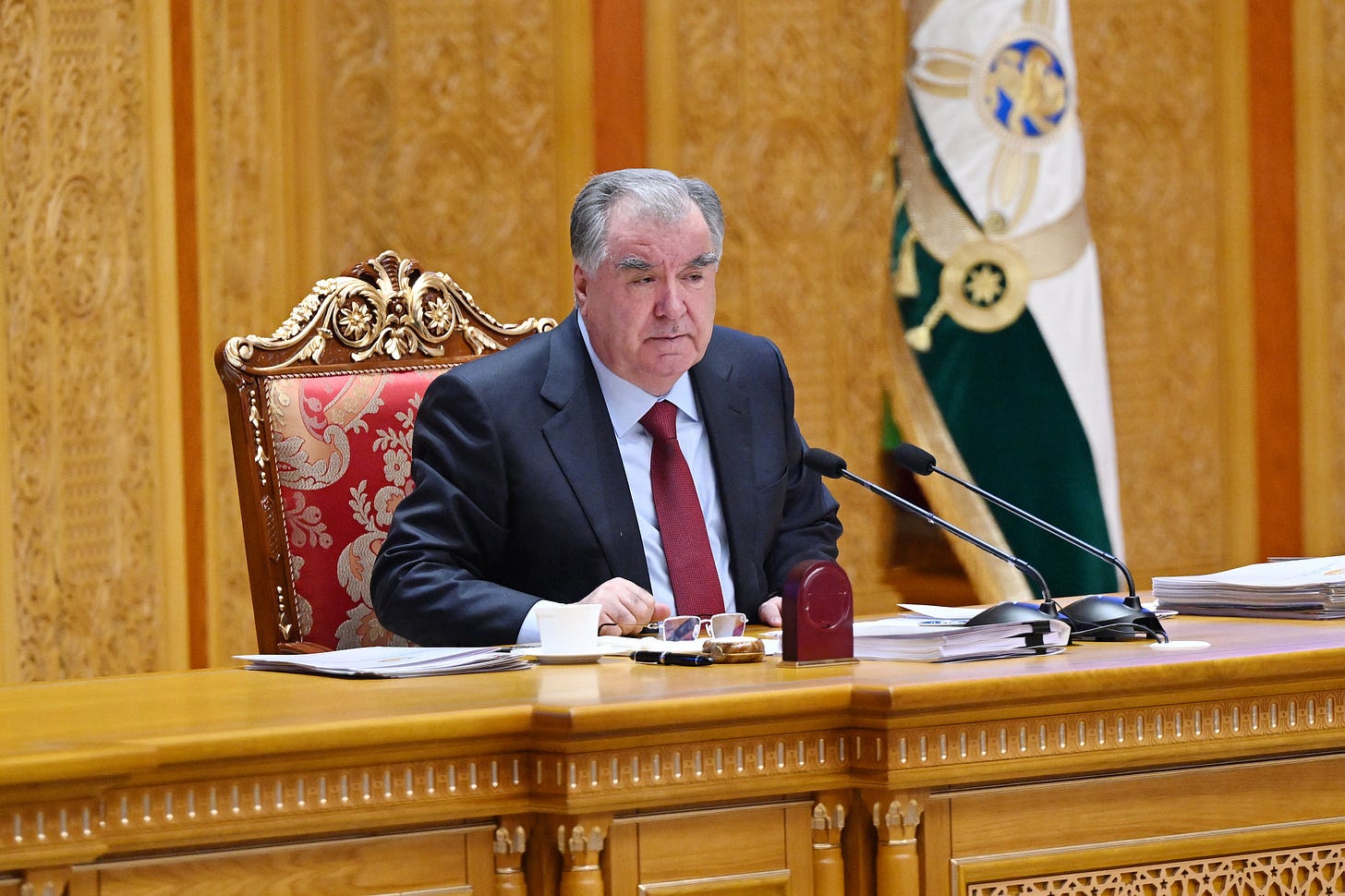Is Tajikistan reshuffle a prelude?
Long-familiar faces in the government have been pushed aside. The official explanation for the shakeup is that there is a need for fresh blood. But is there more to this than meets the eye?

To serve in the government of Tajikistan, competence and suitability are not absolute requirements.
What matters is loyalty and, ideally, personal connections.
For that reason, sudden shakeups in the upper echelons of power inevitably rai…
Keep reading with a 7-day free trial
Subscribe to Havli - A Central Asia Substack to keep reading this post and get 7 days of free access to the full post archives.




